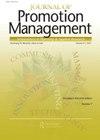Sharing More, Owning Less: How Consumer Minimalism Drives the Sharing Economy
Q2 Business, Management and Accounting
引用次数: 0
Abstract
AbstractConsumer minimalism has emerged as a significant trend influencing purchasing decisions in the evolving landscape of consumer behavior. However, minimalism is well acknowledged across various disciplines, very limitedly explored in tourism literature, especially in the context of shared services in the tourism industry. Based on this knowledge gap, this study proposes an integrative theoretical framework using the value-attitude-behavior theory and the theory of planned behavior to investigate the impact of minimalism on the purchase behavior of shared services. The data collected from 454 tourists with previous experience using sharing economy-based services implies that consumer minimalism profoundly influences purchase behaviors within shared services. Furthermore, Regional brand identity significantly impacts the relationship between consumer minimalism and behavioral intention. The results add substantially to the existing knowledge in the value-attitude-behavior theory and the Theory of Planned Behavior. The results will also help tourism managers and marketers frame policies to meet tourists’ backgrounds and value systems.Keywords: sharing economyconsumer minimalismminimalistic behavioractual behaviorregional brand identity Disclosure statementThe authors have declared no conflicts of interest.分享更多,拥有更少:消费者极简主义如何推动共享经济
摘要消费者极简主义已经成为影响消费者购买决策的重要趋势。然而,极简主义在各个学科中都得到了广泛认可,在旅游文献中,尤其是在旅游业共享服务的背景下,对极简主义的探索非常有限。基于这一知识缺口,本研究运用价值-态度-行为理论和计划行为理论,提出了一个整合的理论框架来研究极简主义对共享服务购买行为的影响。从454名曾经使用过基于共享经济的服务的游客中收集的数据表明,消费者极简主义深刻地影响了共享服务中的购买行为。此外,区域品牌识别显著影响消费者极简主义与行为意愿的关系。研究结果大大补充了价值态度行为理论和计划行为理论的现有知识。研究结果还将帮助旅游管理者和营销人员制定符合游客背景和价值体系的政策。关键词:共享经济消费者极简主义行为实际行为区域品牌认同披露声明作者声明无利益冲突
本文章由计算机程序翻译,如有差异,请以英文原文为准。
求助全文
约1分钟内获得全文
求助全文
来源期刊

Journal of Promotion Management
Business, Management and Accounting-Marketing
CiteScore
6.10
自引率
0.00%
发文量
26
期刊介绍:
The Journal of Promotion Management will keep you up-to-date on applied research and planning in promotion management. It is designed for practitioners in advertising, public relations, and personal selling, as well as academicians, researchers, and teachers in these areas. Every year, businesses in the United States budget approximately two-thirds of all marketing money into consumer and trade promotions designed to push products through the distribution chain. Any successful brand marketing plan relies on promotion, whether to stimulate immediate sales or ensure continued commerce.
 求助内容:
求助内容: 应助结果提醒方式:
应助结果提醒方式:


